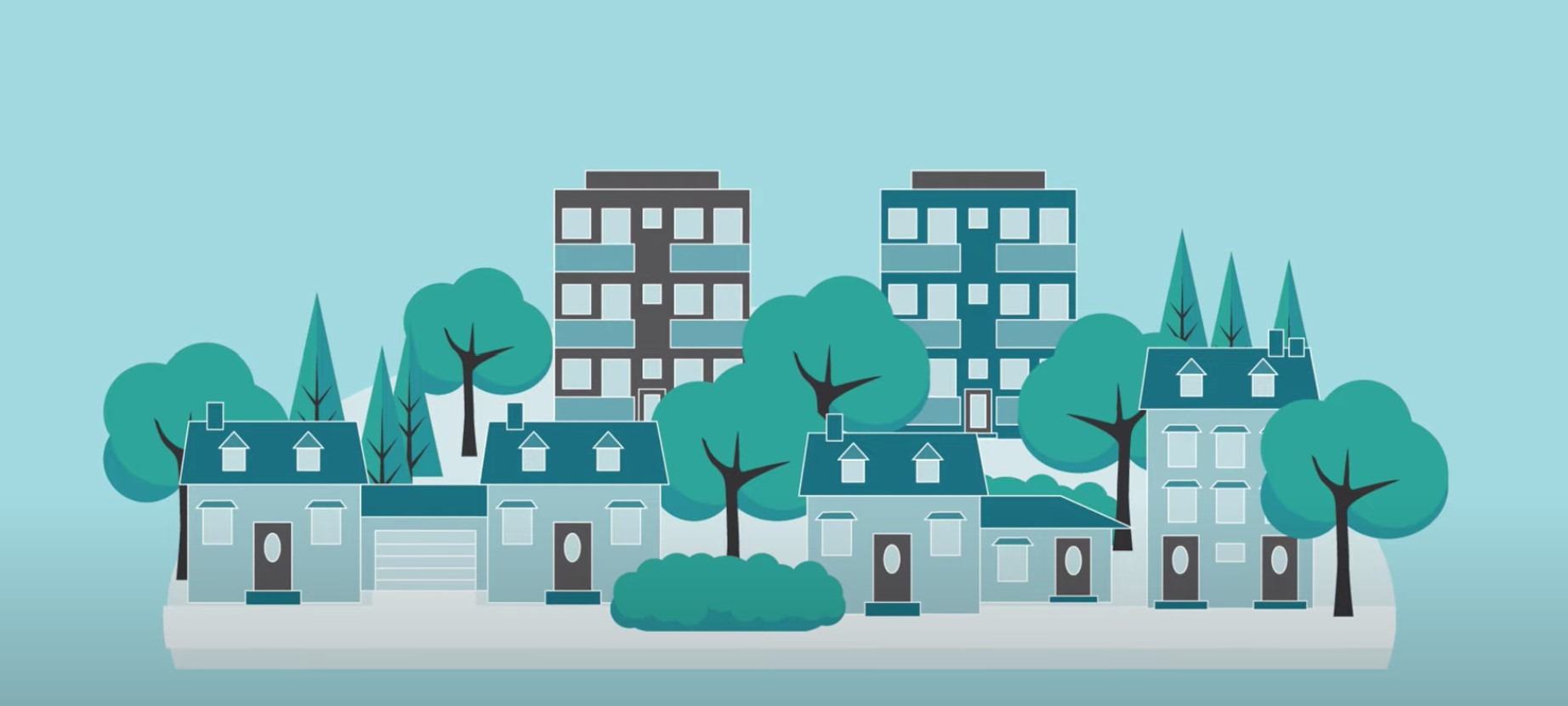
5 March 2021
Building Social Innovation Into Housing Challenges
YWCA Metro Vancouver Launches a Housing Solutions Lab to Tackle Barriers to Building More Deeply Affordable Housing for Single Parents
In early 2020, YWCA Metro Vancouver reached out to Urban Matters with a persistent and difficult challenge: how to sustainably fund the development and operations of housing for single-parent families with low incomes. The YWCA is not the only organization dealing with this challenge and wanted to figure out a new way to look at this issue. Our conversations led to the launch of a CMHC-funded housing solutions lab, bringing together stakeholders across the housing sector to reimagine how we think about and fund deeply affordable housing for single-parent families.
Brenda Madrazo is a senior manager of fund development for programs and housing at the YWCA and is the host of the YWCA housing solutions lab. She sat down with Marina Jozipovic, Urban Matters consultant and lead facilitator on this project, to talk about why this project is so important and how this work connects to persistent patterns in the Vancouver housing system.
A solutions lab is an innovative approach for tackling complex challenges that require systems change. Labs often bring together a variety of individuals and organizations with different perspectives on the issue with the goal of developing solutions that can be tested. Solutions labs are also often called social innovation labs, design labs or change labs.
The Why
Single-parent families face significant barriers in Metro Vancouver’s housing market. These families need larger units, but typically make far lower incomes than couples with children. Many of these families spend a big chunk of their income on housing, at the expense of other bills, nutritious food, and “extras” like sports and arts programming that support childhood development. These sacrifices cause stress and have long-term health impacts. The constant worry about housing makes it more difficult for parents to pursue employment and educational opportunities and move out of poverty.
To highlight why this is such a challenge, consider that the median rent for a two-bedroom unit in Metro Vancouver was $1,650 in 2020 (CMHC). For this to be affordable, a household would need to earn at least $66,000. The median household income for single mothers in Metro Vancouver was about $50,000 (2016 Census), meaning they could afford to pay only about $1,250 per month. The gap is even more significant for single-parent families on Income Assistance who only have about $570 per month to spend on housing.
Marina: What challenges has the YWCA faced in building this type of housing?
Brenda: YWCA Metro Vancouver builds and operates housing for families led by single mothers and we are working hard to find ways of building more of the types of housing that are needed. But we face numerous barriers such as the high cost of land, construction and operations, combined with limited revenue potential and unpredictable funding sources.
Probably the biggest challenge is making these projects financially feasible from the start. To provide this type of deeply affordable housing for families, we offer rents that are in line with what parents can afford. This means the cost of building and operating this housing is far more than the rent revenue. We’re always exploring new options and the YWCA has great fundraising capacity and many committed donors. However, it’s still a major challenge to make the numbers work consistently and sustainably.
Marina: What inspired the YWCA to host a housing solutions lab on this challenge and bring other stakeholders on board?
Brenda: We’re not the only organization facing these challenges, it’s a systemic issue for non-profit housing providers. We also know we can’t solve this alone. There is so much unmet need in the community, and we felt there was a serious need to rethink the problems we’re facing. When CMHC announced the Housing Solutions Lab program, we thought this would be a fantastic opportunity to bring together a group of people working across all the relevant sectors to think together—non-profit housing providers, developers, local governments, provincial agencies, philanthropists… we all play a part in this system.
I was particularly excited about the methodology which creates space for people to think and interact in a different way from their day to day. To rethink our assumptions, we need to change how we work.
Brenda: I’m curious, how have you seen this problem reflected in other housing sector work you do?
Marina: We work with many local governments on housing needs assessments and the trend that’s emerging is clear: consistently, single parent families with low incomes are facing the most significant housing challenges. Our housing system, especially the private market, is simply not set up to create options for them.
Having stable housing is critical to disrupting intergenerational cycles of poverty and inequality. It’s about creating conditions for parents and children to have opportunities to thrive. Our housing affordability crisis makes it incredibly difficult to afford living in the region and move of poverty. We’ve also seen through the COVID-19 pandemic that many renter households face unstable housing when they lose their source of income. The pandemic also highlighted the vulnerability of women and children facing domestic violence when they don’t have access to safe and affordable housing. While governments have put in place many important emergency measures, we still need to think about long-terms solutions to housing affordability.
Brenda: What do you see as the value of a lab?
Marina: It creates a space that is necessary but often rare: a chance for folks across the system to think together. A lab is a chance to soften our institutional and personal agendas to uncover systemic barriers that affect all of us and imagine ways of working that are more generative. They are inherently experimental, and we don’t know what we’re going to come out with at the start—a rare opportunity in the context of how many organizations typically work.
Brenda: Any fears?
Marina: Of course! We’re asking for people’s time, energy, and creativity while staying open to what emerges.
Marina: What do you hope will come out of this process?
Brenda: One or two solutions that can be implemented to address this complex housing problem. And I’d love to explore ways of unlocking resources that we haven’t thought of yet.
One outcome is already emerging that is making us rethink again. Many of us across sectors are aligned in the bigger picture of wanting more affordable housing for families. However, each organization has its own set of priorities and metrics and this influences how we do our work and does not always result in supporting each other to reach our shared goal. Working together in this way at the lab helps us uncover both where we align and how we don’t. This process is helping us test a method of working together that may be useful for other complex challenges. We are grateful to CMHC for the financial support to host this solutions lab.
To learn more about housing and other programs provided by the YWCA Metro Vancouver, check out www.ywcavan.org.
To learn more about the National Housing Strategy and CMHC Solutions Labs, check out www.cmhc-schl.gc.ca/en/nhs/solution-labs.




